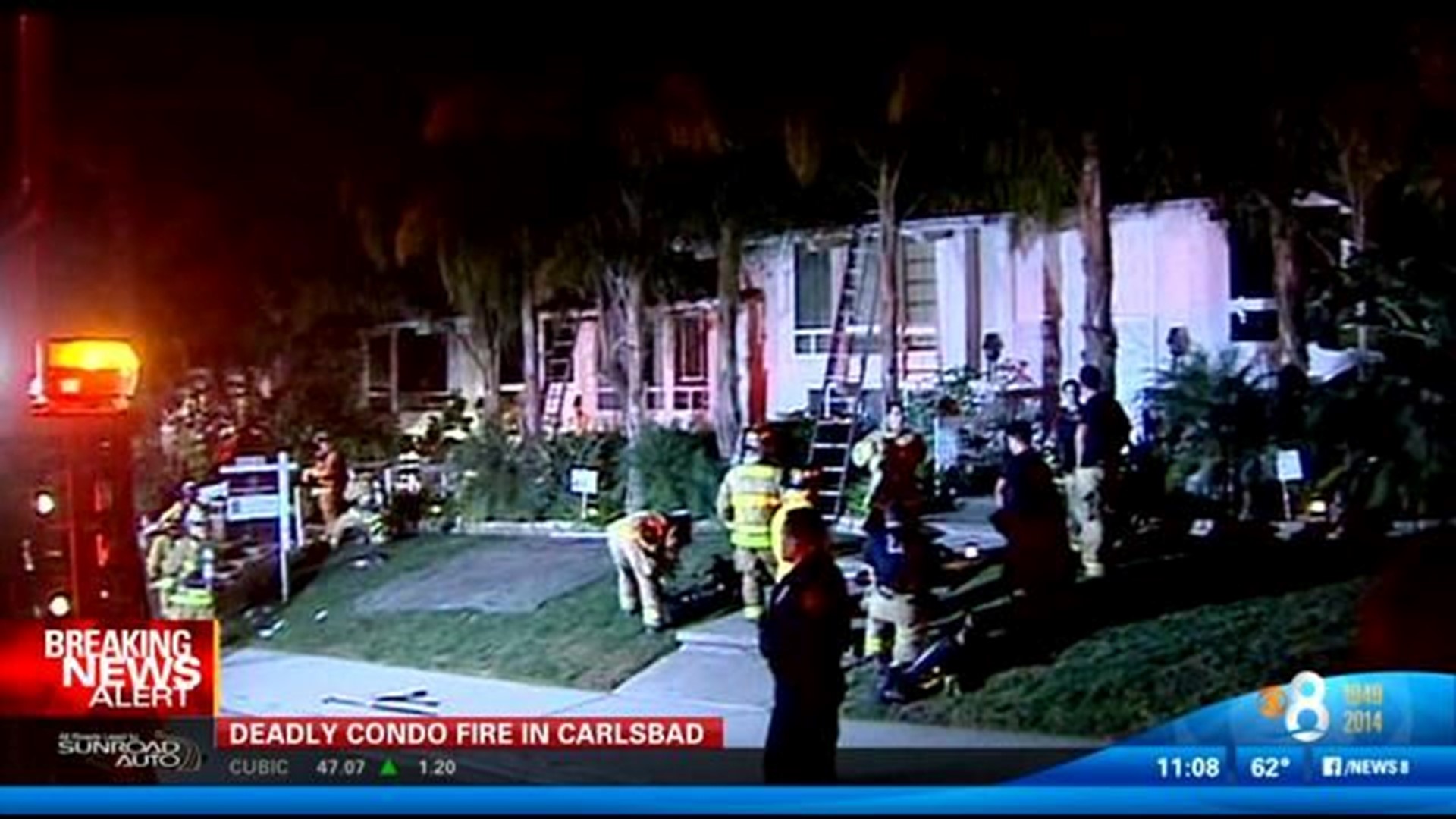SAN DIEGO (CBS 8/CNS) - For the second night in a row, hundreds of protesters took to the streets of City Heights and surrounding neighborhoods to voice their outrage at a Missouri grand jury's decision not to charge a white police officer over the shooting death of an unarmed young black man.
On Tuesday evening, the planned rally and march started peacefully, with hundreds gathering at the City Heights Performance Annex then marching around the mid-city police substation. But as the night moved on, the crowds became unruly. At one point, the group took over part of Interstate 15 under the Orange Avenue Bridge.
A number of people were detained Tuesday, but it's unclear if any arrests were made.
Meanwhile, a daytime demonstration at San Diego State University preceded rallies that began in the early evening in front of Edward J. Schwartz Federal Building on Front Street downtown and at City Heights/Weingart Library and Performance Annex in the 3700 block of Fairmount Avenue.
Hundreds of demonstrators were taking part in the after-dark protests, marching, waving signs and chanting.
The events were among numerous ones that have taken place nationwide after the grand jury declined Monday to file charges against Officer Darren Wilson in the Aug. 9 death of 18-year-old Michael Brown.
Despite a call from the Brown family for supporters to keep things civil, several violent protests that included fires and looting broke out across the nation in the hours after the decision was announced.
For more than three months, the officer-involved shooting death of Brown has shined a national spotlight on the small Missouri town of Ferguson outside of St. Louis, and the issue of racism.
Brown was fatally shot on a residential street in broad daylight while allegedly trying to evade arrest by Wilson. At the time, Wilson, an eight-year veteran of the Ferguson Police Department, was responding to a robbery call in the area and had stopped Brown and another young man for questioning.
Several witnesses came forward, claiming that Brown was shot in the back but a subsequent autopsy report showed he was not, prosecuting attorney Robert McCulloch said during a news conference. The grand jury concluded that there was no probable cause to believe that Wilson committed a crime.
Don Dripps, a professor at the University of San Diego School of Law, told City News Service that an investigation by the U.S. Department of Justice could bring far more change to Ferguson than the prosecution of one police officer.
Such an investigation could result in a "consent decree" that would place the police department under a federal monitor, tighten use-of-force restrictions and require reporting of interactions between officers and the public. The restrictions would be imposed if a pattern of civil rights violations was found, he said.
Police departments in Detroit, New Orleans and Pittsburgh are operating under consent decrees, he said.
Dripps said it was "extraordinary" for McCulloch to go through a grand jury and even more so to make the testimony and exhibits public.
"It didn't prevent violence in the community -- it happened," Dripps said. "If that was the goal, it didn't work."
Justin Brooks, the director of the California Innocence Project at the California Western School of Law in San Diego, said that based on similar cases in the past, he isn't sure if positive change will come from Brown's death.
"I don't see enough change that's occurred because people are polarized in their positions," Brooks said. He said some people believe police have no racial bias, while others are so angered by it that they set fires.
Brooks called the grand jury decision an "extraordinary result" because it's rare that prosecutors are unable to obtain an indictment.
Brooks, who works to free wrongfully imprisoned inmates, criticized the decision to go through the secretive grand jury process. In a more public proceeding, the evidence would come out piece-by-piece, he said.
"The general public would have a greater acceptance of it," Brooks said.
Brooks said he hopes the episode leads to greater training for police officers.

